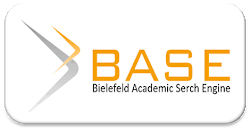The Urgency of Peace Education in Aceh's Educational Institutions
DOI:
https://doi.org/10.22373/jsai.v4i3.3936Keywords:
Urgency, Peace Education, Aceh Conflict, Educational InstitutionsAbstract
The protracted conflict in Aceh has inflicted significant damage upon the region's social and educational infrastructure, engendering an urgent imperative for the integration of peace education within educational institutions. This article aims to discuss the urgency of peace education in Aceh's educational institutions. A qualitative research methodology, employing a literature study approach, was adopted, gathering and analyzing data from various relevant sources to gain a comprehensive understanding. This study showed that peace education is not only critical for post-conflict recovery but also essential in shaping the attitudes of tolerance and conflict understanding among the youth. This need is underscored by Aceh's conflict history and its enduring impact on society. The article concludes that peace education is an urgent requirement in Aceh's schools, with the potential to equip students with knowledge and attitudes supportive of sustained peace and future violence prevention. Investment in peace education in Aceh is vital for regional stability and serves as a potential global model for post-conflict peacebuilding.
References
Alferez, Bro. Jose Arnold L. 2018. “EFFECTIVENESS OF PEACE EDUCATION PROGRAMMES OF THE GRADUATE COLLEGE IN COTABATO CITY STATE POLYTECHNIC COLLEGE.” International Journal of Social Science and Humanities Research 6(4):1005–12.
Alnufaishan, Sara. 2020. “Peace Education Reconstructed: Developing a Kuwaiti Approach to Peace Education (KAPE).” Journal of Peace Education 17(1):83–106. doi: 10.1080/17400201.2019.1627516.
Arslan, Yaser, Gizem Günçavdı, and Soner Polat. 2015. “The Impact of Peace Education Programme at University on University Students’ Intercultural Sensitivity.” Procedia - Social and Behavioral Sciences 174:2301–7. doi: 10.1016/J.SBSPRO.2015.01.891.
Averink, Marijke. 2013. “Education for Sustainable Peace: The Role of Education in the Aftermath of Ethnic Conflict.” University of Ultrecht.
Bar-Tal, Daniel, and Yigal Rosen. 2009. “Peace Education in Societies Involved in Intractable Conflicts: Direct and Indirect Models.” Review of Educational Research 79(2):557–75. doi: 10.3102/0034654308330969.
Barron, Patrick. 2008. “Managing the Resources for Peace: Reconstruction and Peacebuilding in Aceh.” Accord: An International Review of Peace Initiatives (20):58–61.
Barron, Patrick, Samuel Clark, and Muslahuddin Daud. 2005. Conflict and Recovery in Aceh: An Assessment of Conflict Dynamics and Options for Supporting the Peace Process. World Bank, Washington, DC.
Brown, Graham K. 2011. “The Influence of Education on Violent Conflict and Peace: Inequality, Opportunity and the Management of Diversity.” Prospects 41(2):191–204. doi: 10.1007/s11125-011-9186-6.
Cuga, Candra, Dasim Budimansyah, and Bunyamin Maftuh. 2020. “The Effectiveness of Peace Education Learning Models Toward Students’ Understanding of Peace-Loving and Anti-Violence.” in 2nd Annual Civic Education Conference (ACEC 2019).
D. Bush, Kennet, and Diana Saltarelli. 2000. THE TWO FACES OF EDUCATION IN ETHNIC: Towards a Peacebuilding Education for Children OF EDUCATION. Italy.
Davies, Lynn. 2010. “The Different Faces of Education in Conflict.” Development 53(4):491–97. doi: 10.1057/dev.2010.69.
Djamil, Muhammad Syawal. 2019. “Pendidikan Damai.” Retrieved August 10, 2022 (https://mediaindonesia.com/opini/225153/pendidikan-damai).
Frljak, Emina. 2023. “What Is Peace Education Exactly and Why Do We Need It?” United Religions Initiative. Retrieved July 24, 2023 (https://www.uri.org/uri-story/20230109-what-peace-education-exactly-and-why-do-we-need-it).
Global Ed Leadership. 2022. “What Is PEACE EDUCATION? .” Retrieved August 9, 2022 (https://globaledleadership.org/2022/02/03/what-is-peace-education/).
Harris, Ian M. 2011. “History of Peace Education.” Pp. 11–20 in Handbook on Peace Education.
Hendry, Eka. 2015. “PENGARUS UTAMAAN PENDIDIKAN DAMAI (PEACEFUL EDUCATION) DALAM PENDIDIKAN AGAMA ISLAM (Solusi Alternatif Upaya Deradikalisasi Pandangan Agama).” At-Turats 9(1):3. doi: 10.24260/at-turats.v9i1.303.
Hutagalung, Fonny, Kusmawati Hatta, and Zahari Ishak. 2013. “Trauma among Adolescents Victim of Armed Conflict and Tsunami in Aceh.” Psikologia 8(1):1–11.
Johnson, David W., and Roger T. Johnson. 2005. “This Issue: Peace Education.” Theory Into Practice 44(4):275–79. doi: 10.1207/s15430421tip4404_1.
Kester, Kevin. 2010. “Education for Peace: Content, Form, and Structure: Mobilizing Youth for Civic Engagement.” Peace and Conflict Review 4(2):1–10.
Mamoon, Dawood. 2017. “Building Peace through Education: Case of India and Pakistan Conflic.” Munich Personal RePEc Archive (82749).
Nurcholis, Ahmad. 2015. Peace Eduacation & Pendidikan Perdamaian Gus Dur. Jakarta: PT Elex Media Komputindo.
Pandey, Kshama, and Pratibha Upadhyay, eds. 2016. Promoting Global Peace and Civic Engagement through Education. IGI Global.
Peace Insight. 2022. “Peace Education.” Retrieved July 9, 2022 (https://www.peaceinsight.org/en/themes/peace-education/?location&theme=peace-education).
Reardon, Betty A. 1999. Peace Education: A Review and Projection. Peace Education Reports No. 17. Malmo University.
Salomon, Gavriel, and Ed Cairns, eds. 2011. Handbook on Peace Education. Psychology Press.
Sariyatun, Hermanu Joebagio, and Muhammad Akhyar. 2019. “Peace Education as the Development of Social Skill in Social Science Learning.” Paramita: Historical Studies Journal 29(2):157–66. doi: 10.15294/paramita.v29i2.15955.
Shah, Ritesh, and Mieke Lopes Cardozo. 2014. “Education and Social Change in Post-Conflict and Post-Disaster Aceh, Indonesia.” International Journal of Educational Development 38:2–12. doi: 10.1016/j.ijedudev.2014.06.005.
Smith, Alan, and Tony Vaux. 2003. Education, Conflict and International Development. UK.
Snauwaert, Dale. 2011. “Social Justice and the Philosophical Foundations of Critical Peace Education: Exploring Nussbaum, Sen, and Freire.” Journal of Peace Education 8(3):315–31. doi: 10.1080/17400201.2011.621371.
Sukendar, Sukendar. 2011. “Pendidikan Damai (Peace Education) Bagi Anak-Anak Korban Konflik.” Walisongo: Jurnal Penelitian Sosial Keagamaan 19(2):271. doi: 10.21580/ws.2011.19.2.158.
Tidwell, Alan. 2004. “Conflict, Peace, and Education: A Tangled Web.” Conflict Resolution Quarterly 21(4):463–70. doi: 10.1002/crq.74.
Wawira, Esther. 2013. “Factors Influencing Implementation Of Peace Education Programme In Primary Schools: A Case Of Tharaka North District.” University of Nairobi.
World Bank. 2009. Diagnosis Pertumbuhan Aceh. Jakarta: The World Bank.
Wulandari, Taat. 2015. “Menciptakan Perdamaian Melalui Pendidikan Perdamaian Di Sekolah.” MOZAIK: Jurnal Ilmu-Ilmu Sosial Dan Humaniora 5(1):68–83. doi: 10.21831/moz.v5i1.4340.
Zainal, Suadi, Saifuddin Yunus, and Fadli Jalil. 2019. “Post-Conflict Peace Education in the Public Schools of East Aceh, Indonesia.” International Journal of Innovation, Creativity and Change 9(5):325–37.
Downloads
Published
How to Cite
Issue
Section
License
- Authors retain copyright and grant the journal right of first publication with the work simultaneously licensed under an Attribution-NonCommercial-ShareAlike 4.0 International (CC BY-NC-SA 4.0) that allows others to share the work with an acknowledgment of the work's authorship and initial publication in this journal.
- Authors are able to enter into separate, additional contractual arrangements for the non-exclusive distribution of the journal's published version of the work (e.g., post it to an institutional repository or publish it in a book), with an acknowledgment of its initial publication in this journal.
- Authors are permitted and encouraged to post their work online (e.g., in institutional repositories or on their website) prior to and during the submission process, as it can lead to productive exchanges, as well as earlier and greater citation of published work.













